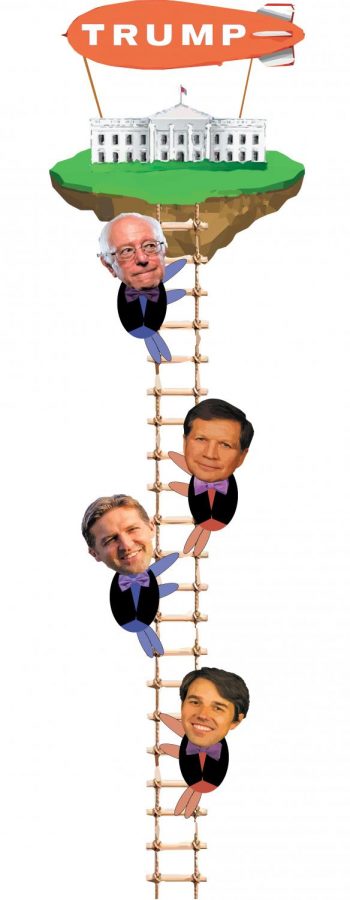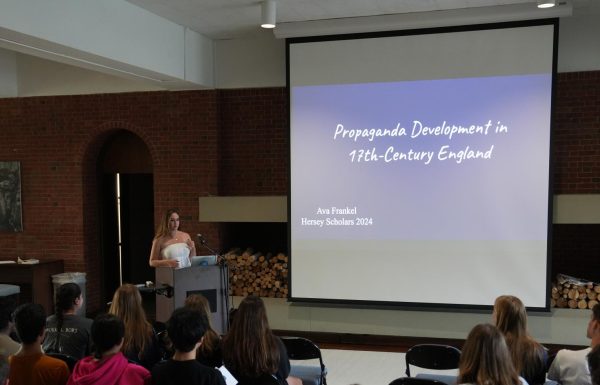President Trump’s Potential Primary Opponents
Many have speculated whether President Trump will have Republican competitors to run against in the 2020 elections. Media has circled around some who have already publicly announced their interest in competing for the presidency. While most have not denied interest, none have committed to campaigns. I believe people who will potentially run in 2020 include Bob Corker, Jeff Flake, John Kasich, and Ben Sasse. If Bob Corker or Jeff Flake were to run, they would not present a challenge to President Trump in the primaries.
Sen. Bob Corker (R-TN) is an active critic of the Trump Administration and has had many feuds with President Trump, including direct Twitter wars. This presents a problem, as Trump’s approval rating within the Republican Party has been high 80s to low 90s. Because of this reality, Bob Corker would struggle for votes within the Republican Primaries, because the majority of the party supports President Trump. I believe Corker should not run for presidency in 2020, in view of the fact that he fails to even win within his own state, Tennessee, and was instead replaced by Republican candidate Martha Blackburn. This fact further diminishes his chance of success in the 2020 primaries.
Sen. Jeff Flake (R-AZ) has also been an extremely vocal anti-Trump conservative. This contention, like Bob Corker, has brought up the issue of his electability within the Republican Party. His failure to maintain his Senate seat within his own state, the red state of Arizona, shows his inability to win over voters. While Corker was succeeded by another Republican, Flake lost his seat to Democrat Kyrsten Sinema. In my opinion, if Flake can not even win as a Republican within a historically red-safe state, how can he possibly pose a challenge to President Trump in the Republican primaries? Andrew Oliver ‘20 went so far as to say, “If you’re trying to go out and vote for Jeff Flake, you’re not going to take the time out of a busy day to go and waste your time to cast a ballot for someone who can’t gain the support of the people in his own state.” I believe Flake is at a point where he does not have constituency. Liberals and conservatives have no need to support him, and Republicans see him as a Trump antagonist. Flake pushed for rigorous FBI investigations against Trump’s nominee for the Supreme Court, Justice Brett Kavanaugh, and also defended the Special Counsel investigation against Trump. Thus, Jeff Flake would not do well in a battle of Republican votes between himself and President Trump.
Gov. John Kasich (R-OH) unsuccessfully ran for presidency, twice, in 2000 and 2016, as a Republican. This in itself should show that voters are consistently hesitant to cast their ballots in his name, but he is apparently “seriously considering” running for 2020. In my opinion, the lack of enthusiasm from the right for Kasich is because his views are too moderate. Although Kasich assures media and the public that he is a Republican conservative, many question this, as he believes in Common Core educational standards and citizenship for illegal immigrants, which goes against the positions held by majority of the Republican party. Kasich has been known to have an off-putting temper; he has made discourteous remarks to donors and viciously attacked those who oppose him, even close friends. This behavior has upset many Republicans, which is why I think, when Kasich runs for 2020, he will find himself adding another loss to his growing list of presidential-run-failures.
Sen. Ben Sasse (R-NE) has the highest probability of gaining votes and posing a challenge to President Trump out of all the people thinking about pursuing the presidency. He has described himself as “sorta an independent conservative who caucuses with Republicans.” Sasse has repeatedly voted for President Trump’s policies, but has questioned whether he should leave the Republican Party and instead, become an Independent. Sasse has stated that he believes most of the people within the Democratic and Republican parties only care about incumbency, and the things he cares about, as an individual, “Isn’t right vs. left. It’s past vs. future.” He is anti-Trump in almost every respect and was the party’s first lone “Never Trump” Republican. He has been described as “everything Trump is not — young, polite, evangelical, intellectual.” Although he is known as one of the most conservative people in the Republican Party, Sasse has repeatedly spoken out against the polarization of politics and has worked with Sen. Elizabeth Warren (D-MA) to pass anti-corruption reforms. Because I believe that bipartisanship is crucial when electing a government official, Sasse emerges as a good candidate for presidency. My only concern for his ability to gain votes is that he doubts his political party. If Sasse runs as a Republican, the fact that he is against President Trump could hurt his chances of gaining votes within the party. I believe he would do best if he were to run on an Independent ticket. But now the question that stands is this: Would people vote for an independent bipartisan scholar or Donald Trump?
History suggests that most new candidates will fail to replace the sitting incumbent. However, there are a few issues that could affect President Trump’s nomination for the Republican party: a possible government shutdown, evidence from the Special Counsel investigation under Robert Mueller, updates on Congress’ lame-duck sessions, and the Democratic House’s decisions. Presently, I think it is most likely that the Republican will rally around President Trump, rather than a new candidate. Others within the Hotchkiss community have also expressed their doubt of someone stealing the nomination from President Trump. Alex McLane ‘20 stated, “Barring any really large scandal, I think it is unfortunately going to be very hard for a Republican to challenge Trump and win.” I believe that there will be people who wish to challenge Trump, but are not in any way able to persuade the public. Mr. Patrick Boor, instructor in history, looked at the situation from President Trump’s view, saying, “If he feels that there’s a seismic political matter, he’ll claim victory by stepping aside, and then it’s an open race. Or, he’ll run again, and I don’t think any Republican will challenge him, unless they feel that there is a great opening.”
In conclusion, I think President Trump has already secured the Republican nomination, as long as no major political controversies appear. However, when President Trump does secure the Republican nomination in February 2020, he still has to battle with the Democratic nominees – who they will be, only time can tell.













